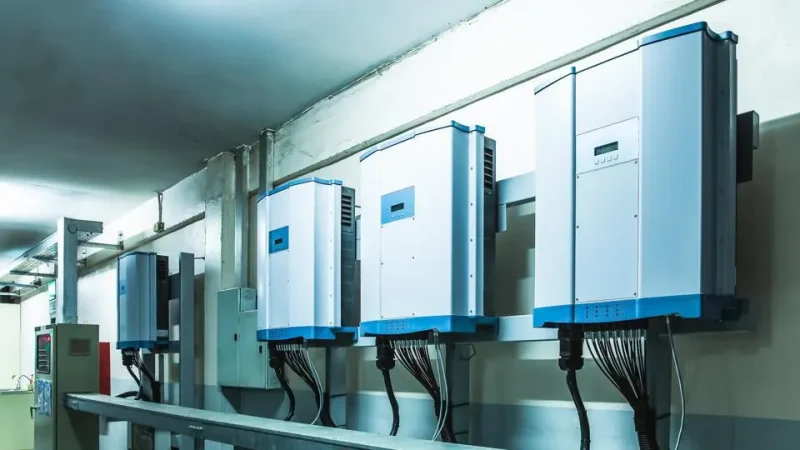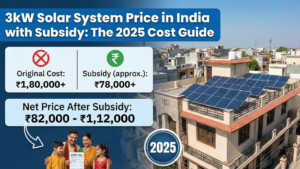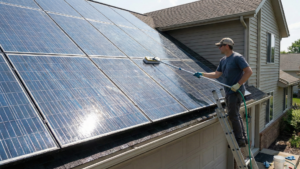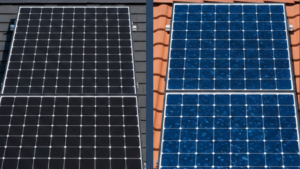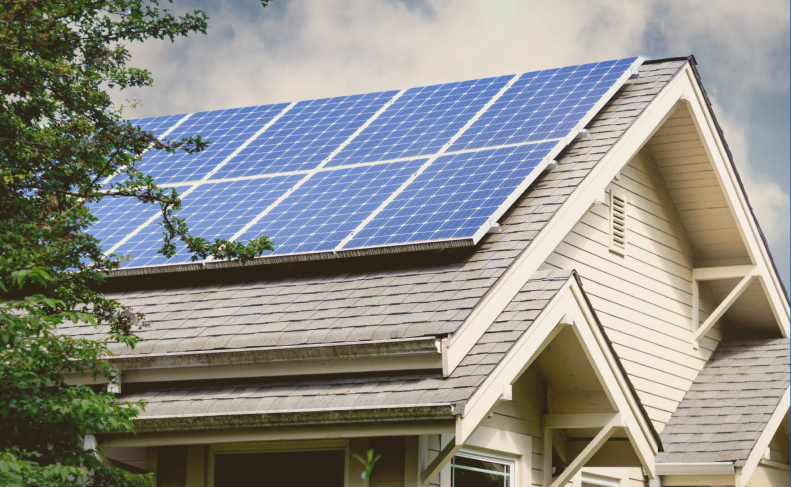Solar batteries are an important component for home solar powered system. There are two important factors to consider while choosing solar batteries:-
(i) Type of Battery
(ii) What is the actual usage.
There are mainly four types of batteries lead-acid, lithium-ion, nickel cadmium, and flow batteries. The most famous one being Lithium ion batteries. Lithium ion batteries can come as AC or DC coupled. AC coupled batteries can be used in existing solar powered system. DC coupled batteries are used in case of installing solar panels.
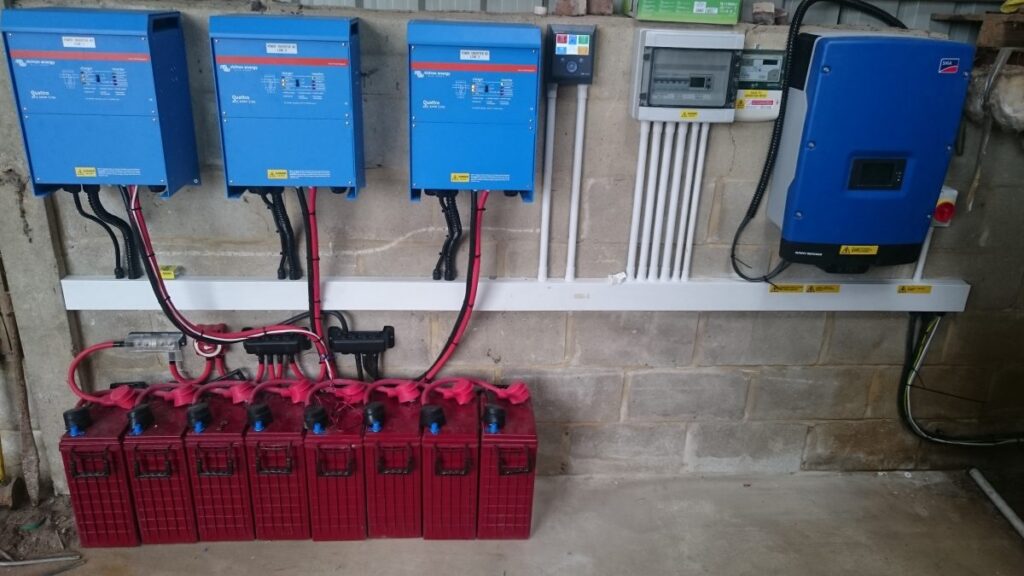
Types of solar batteries
For residential purposes, there are four types of battery technologies:-
- Lead acid batteries
- Lithium ion batteries
- Nickel based batteries
- Flow batteries
Lead acid batteries
Lead acid batteries store energy for a long time and it has stood test of its time due to its reliability.
There are two main types of lead acid batteries: flooded lead acid batteries and sealed lead acid batteries.
Suitable for: Off-grid solar systems or for emergency backup storage in case of a power outage.
Lithium ion batteries
Lithium ion batteries are the newest entrant in the batteries category.
As the adoption of electric vehicles began to rise, Lithium ion batteries have gained popularity. They quickly became one of the most widely used solar battery banks.
Lithium batteries are best suited for residential solar installations as they can store more energy in a limited space and allow you to use more of the energy stored within the battery, which is great for powering a home.
The major disadvantage is it is more expensive than the traditional battery.
Nickel cadmium batteries
These batteries are not in widespread use.
Nickel cadmium batteries can store large amounts of energy. The aircraft industry widely uses it.
Ni-Cd batteries are popular for large scale applications, like utility solar energy storage, because of their durability.
Flow batteries
They contain a water-based electrolyte liquid that flows between two separate chambers, or tanks, within the battery. When charged, chemical reactions occur which allow the storage of energy and subsequently discharged.
Flow batteries are large in size which makes them more expensive. It is not suitable for residential purposes.
DC-coupled vs AC-coupled solar batteries
In case of residential use, an inverter transforms DC power into AC power.
The difference between DC-coupled batteries and AC-coupled batteries lies where the inverter is in the setup. A DC-coupled battery connects directly to a inverter, allowing the DC solar output to flow directly to the batteries, while an AC-coupled battery has its own inverter.
Pros and cons of DC-coupled batteries
DC-coupled batteries get converted to AC only once, making them more efficient. This setup also means a DC-coupled battery can be cheaper to install alongside a new solar system, because there is no need for a battery-specific inverter.
This also means a DC-coupled battery is not ideal for a home that already has solar panels.
Pros and cons of AC-coupled batteries
AC-coupled batteries are utilized in residential settings as they are equipped with their own inverter and are charged through the home’s standard AC circuits, as well as through solar power that has already been converted by any type of existing inverter or microinverter.
Unfortunately, this also means an AC-coupled battery is less efficient, because the power must undergo two or three conversions from DC to AC and back. The drop in efficiency is around 1%-2% for each conversion.
How to find the right solar battery type for you
The best solar battery for residential purposes is Lithium ion batteries.
They are able to hold more energy in a small amount of space, discharge most of their stored energy, and they have high efficiencies. Also, because these are the most common, many solar companies will be able to install a lithium ion solar battery both accurately and safely.
If you are on a budget, lead acid batteries could be the best option for you.
Link: https://amdual.com/solar/
